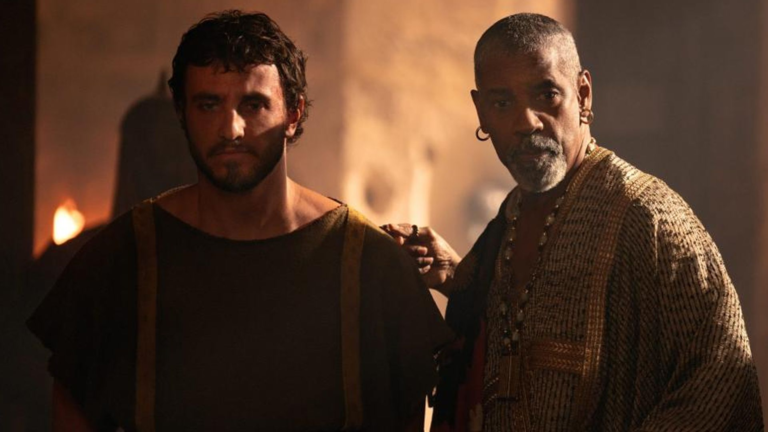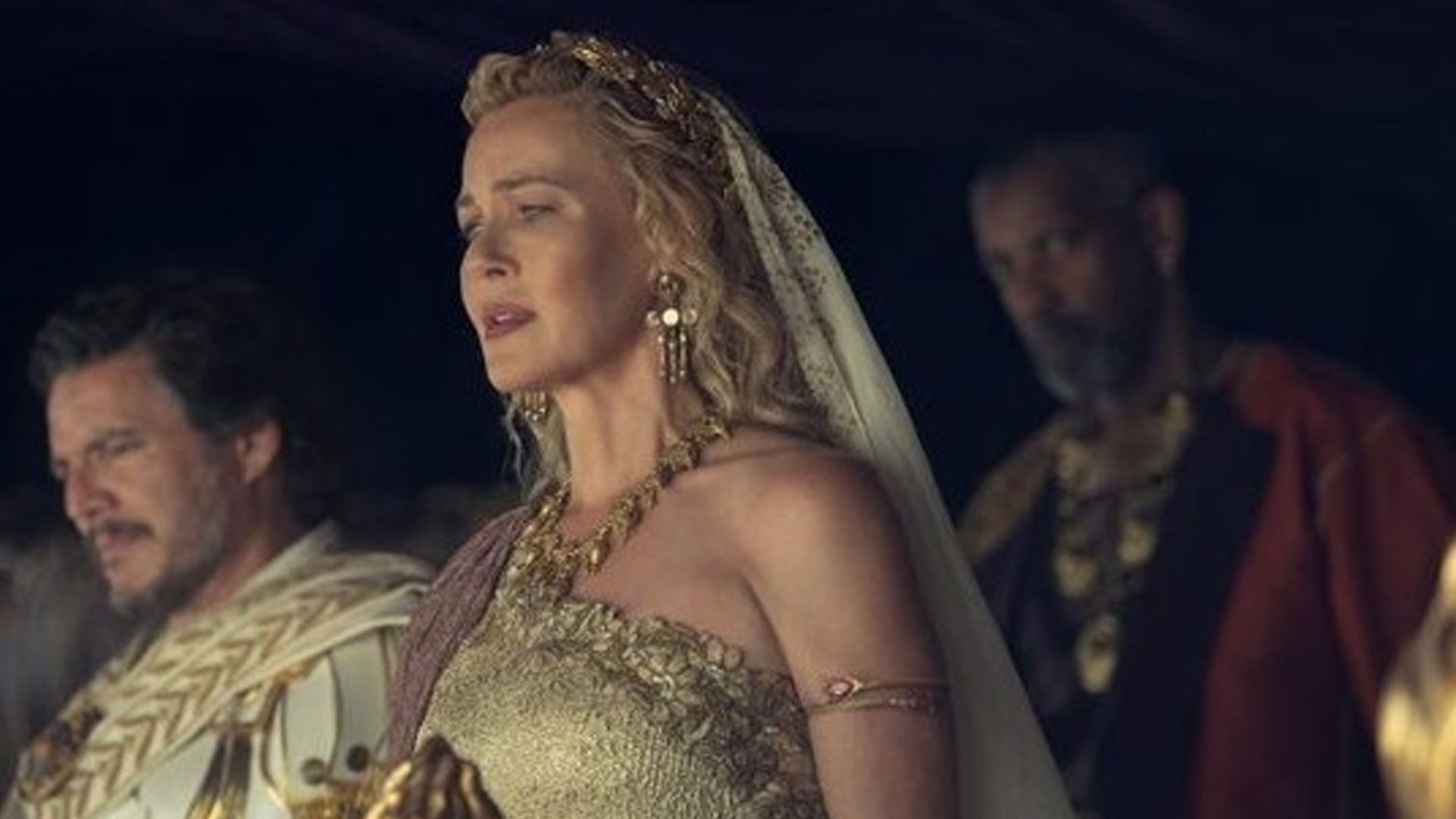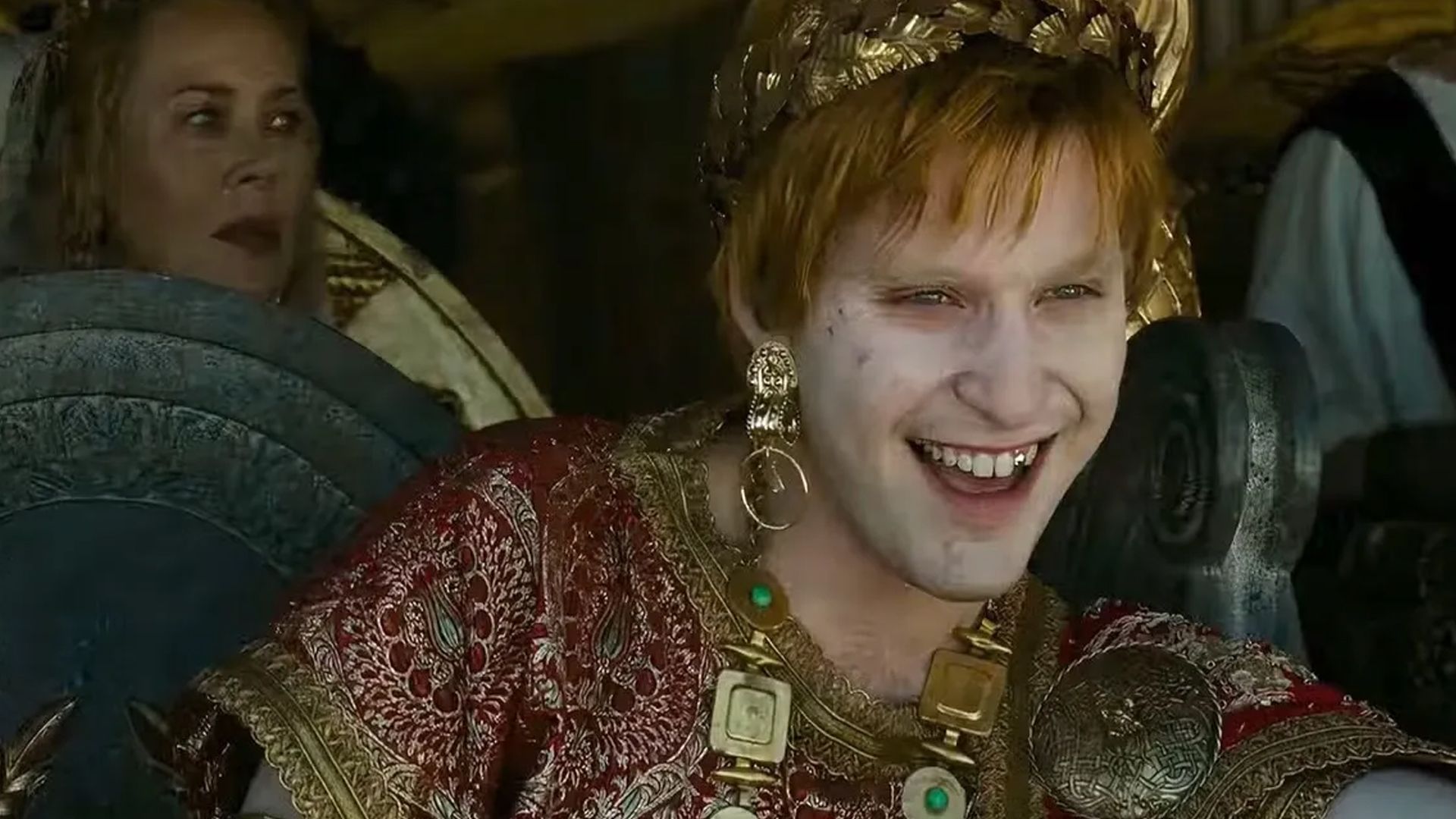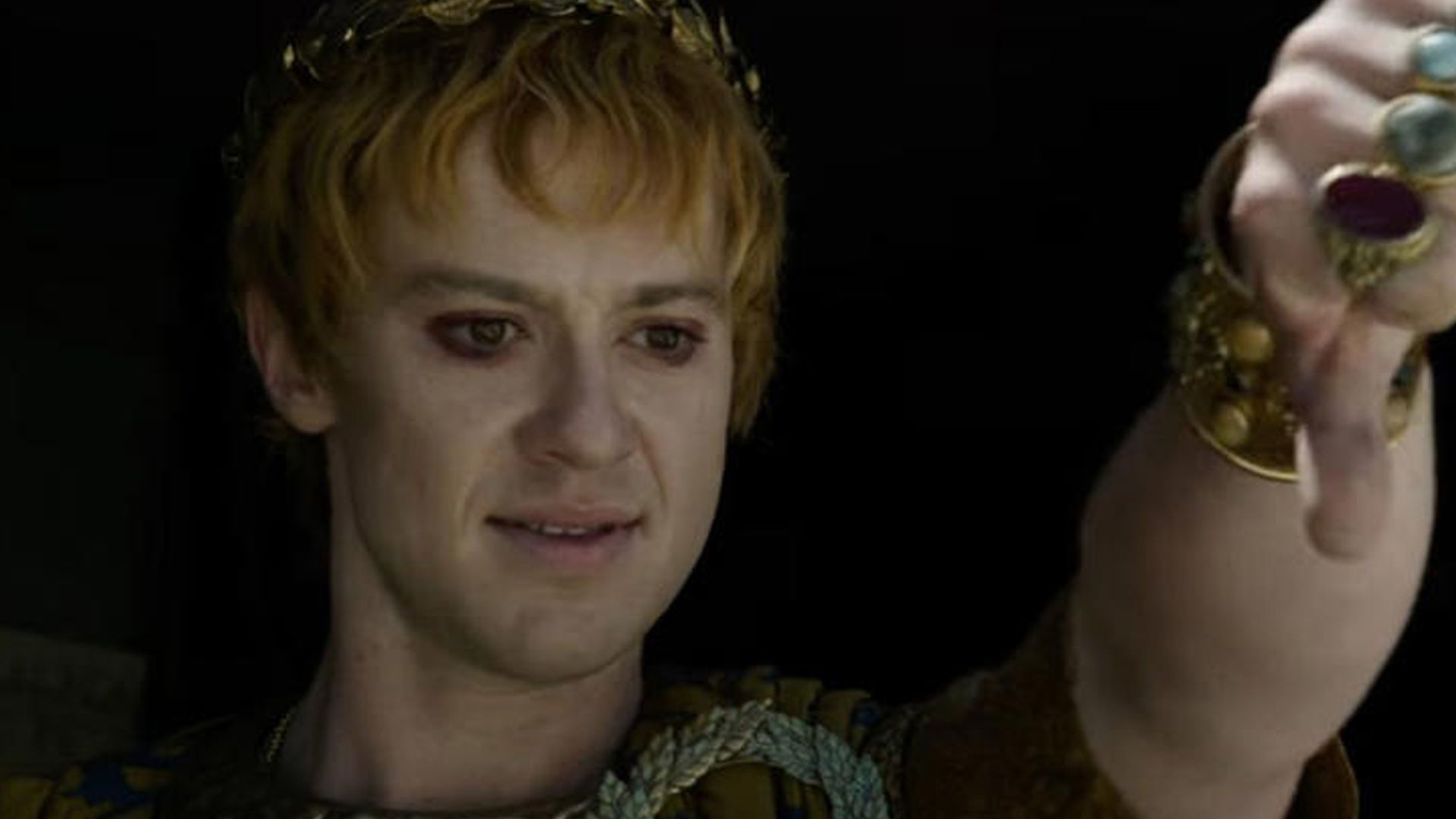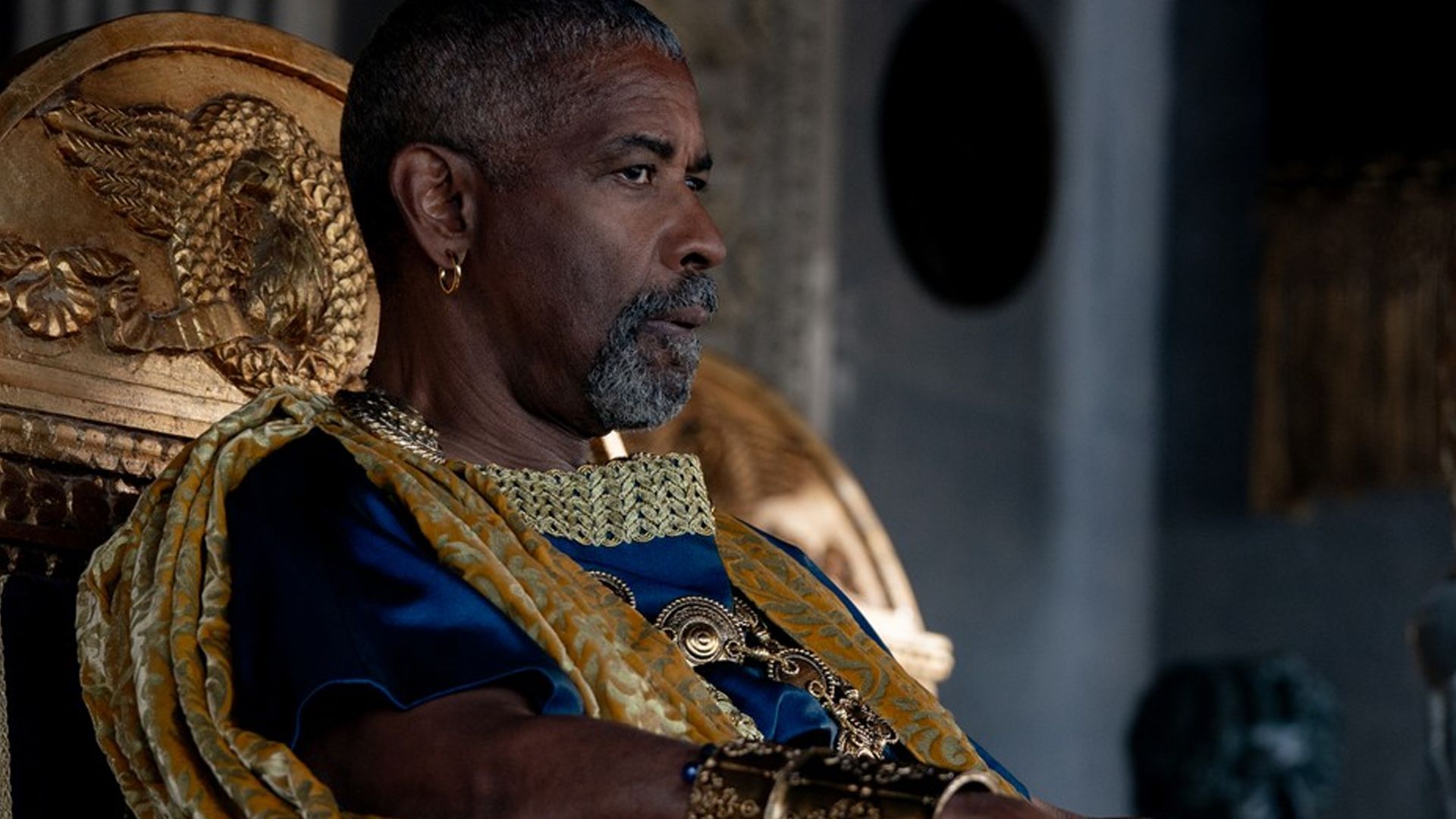Gladiator II is Ridley Scott’s sequel to his 2000 movie Gladiator. In Gladiator II, familiar faces, new heroes, and a new batch of maniacal rulers appear to transport audiences back to ancient Rome. While there are numerous inaccuracies in Gladiator II, several of the characters portrayed on screen were real individuals from Imperial Rome. Lucilla (played by Connie Neilsen in Gladiator) was real, as were Emperors Caracalla and Geta (Fred Hechinger and Joseph Quinn, respectively). The real Lucius Verus (Paul Mescal) and Macrinus (Denzel Washington) were very different from how they are presented in Gladiator II but existed, too.
Here are the Gladiator II characters who lived and breathed in ancient Rome and more about their true stories.
Annia Aurelia Galeria Lucilla, aka Lucilla
As one of the only two members of the cast to return from 2000’s Gladiator, actress Connie Nielsen reprises her role of Lucilla. Based on Annia Aurelia Galeria Lucilla, the daughter of Emperor Marcus Aurelius, Lucia in Gladiator II is reunited with her son, Lucius Verus, after having sent him away on the heels of Maximus Decimus Meridius’ death.
While Lucilla in Gladiator and Gladiator II was Lucius’ mother by Maximus, the real Lucilla was married to Lucius Verus from 164 to 169 CE. Lucius Verus ruled jointly with her father starting in 161 CE but died on his way back from fighting along the Danube River. While Lucilla gave birth to three of Lucius Verus’ children, their son named Lucius Verus died as a child.
After the death of her husband in 169 CE, Lucilla lost her title of Augusta. Her father arranged her marriage to Tiberius Claudius Pompeianus that same year despite a nearly thirty-year age difference. When Marcus Aurelius died in 180 CE, his son and Lucilla’s brother Commodus became emperor. Lucilla organized a plot against Commodus in 182 CE. After it was uncovered, Lucilla was banished and later executed at Commodus’ behest.
Lucius Verus
While there was a real Roman named Lucius Verus, the character portrayed by Paul Mescal was nothing like what is shown in Gladiator II. Lucius Verus on screen was the son of Lucilla and Maximus, who’d not seen his mother since he was a child after she sent him away. The real Lucius Verus, born Lucius Ceionius Commodus, was the son of Emperor Hadrian’s adoptive son and heir, Lucius Aelius Caesar.
Born in Rome in 130 CE and raised alongside his sisters, Lucius Verus’ father died in 138 CE. While he was technically still an adoptive grandson to Hadrian, the Emperor chose Titus Aurelius Antoninus Pius as his successor. Antoninus Pius adopted Lucius Versus and Marcus Aurelius Antonius, Hadrian’s nephew, and succeeded Hadrian to the imperial throne in 138 CE.
Once under Antoninus’ tutelage, Lucius Verus was prepared for a life in politics. He held several positions in Rome and was consul in 154 CE. He became consul again in 161 CE with Marcus Aurelius and, when Antonius Pius died that year, they became co-emperors:
Being forced by the senate to assume the government of the state after the death of the Deified Pius, Marcus made his brother his colleague in the empire, giving him the name Lucius Aurelius Verus Commodus and bestowing on him the titles Caesar and Augustus. Then they began to rule the state on equal terms, and then it was that the Roman Empire first had two emperors, when Marcus shared with another the empire he had inherited.
As co-emperor, Verus undertook various military campaigns in the eastern Empire before dying unexpectedly in 168 CE.
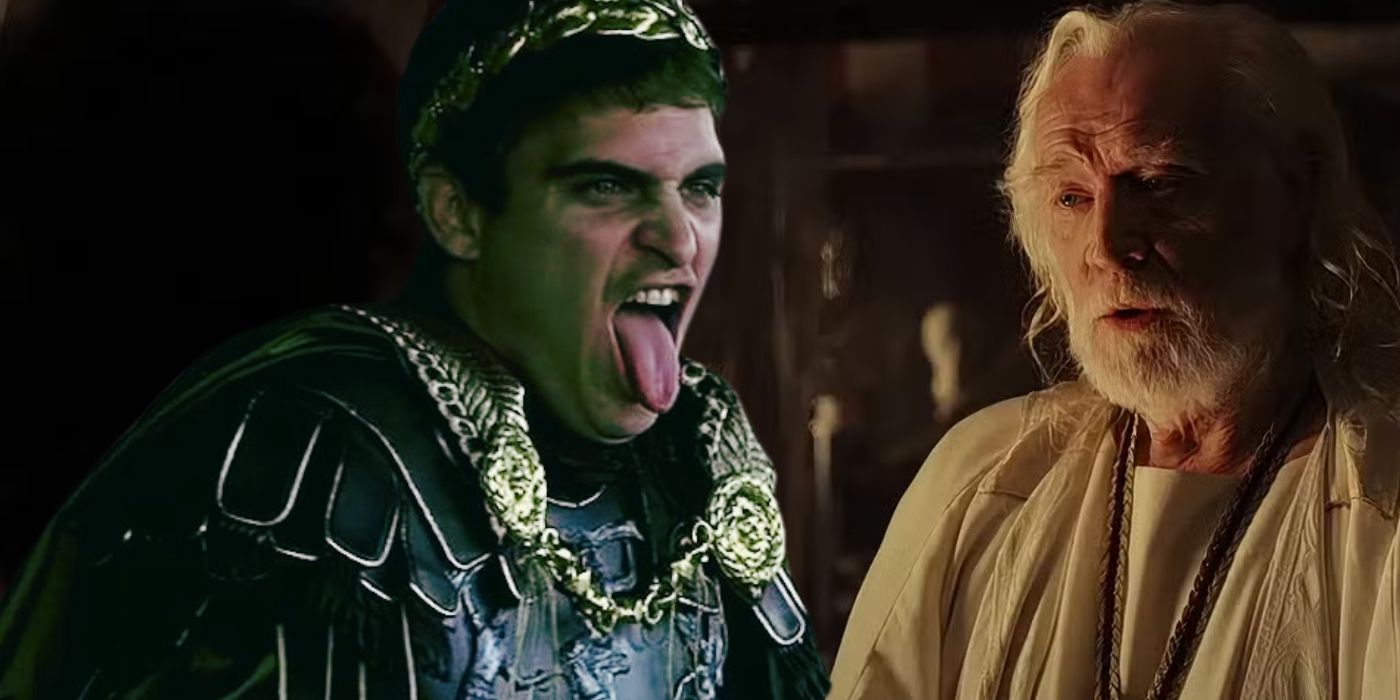
Related
Small But Clever Details The Original ‘Gladiator’ Got Right About the Roman Empire
Ridley Scott’s Gladiator has plenty of glaring historical inaccuracies, but it gets a few small but clever details right.
Lucius Septimius Bassianus, aka Caracalla
Fred Hechinger is depicted as less stable than his brother in Gladiator II and, while his mental faculties are unknown, some of his behaviors are not far off from what is seen in the movie. Known as Caracalla, Lucius Septimius Bassianus was the son of Emperor Septimius Severus. Born in 188 CE, Caracalla was renamed Marcus Aurelius Antonius seven years later as a political move, but was given the nickname Caracalla because he usually wore a Gallic tunic, also called a caracalla.
In Gladiator II, Caracalla and his brother, Geta, were twins, but the former was actually the older of the two brothers. The real Caracalla ruled with his father from 198 to 211 CE and also with Geta from 209 until 211 CE. Caracalla ordered the murder of his brother, Geta, in 211 CE. After he died in 217 CE, Caracalla was described as,
“Evil and he was more brutal even than his cruel father. He was gluttonous in his use of food and addicted to wine, hated by his household and detested in every camp save that of the praetorian guard; and between him and his brother there was no resemblance whatever.”
Caraculla then ruled on his own until he was stabbed to death while on a military campaign in the east.
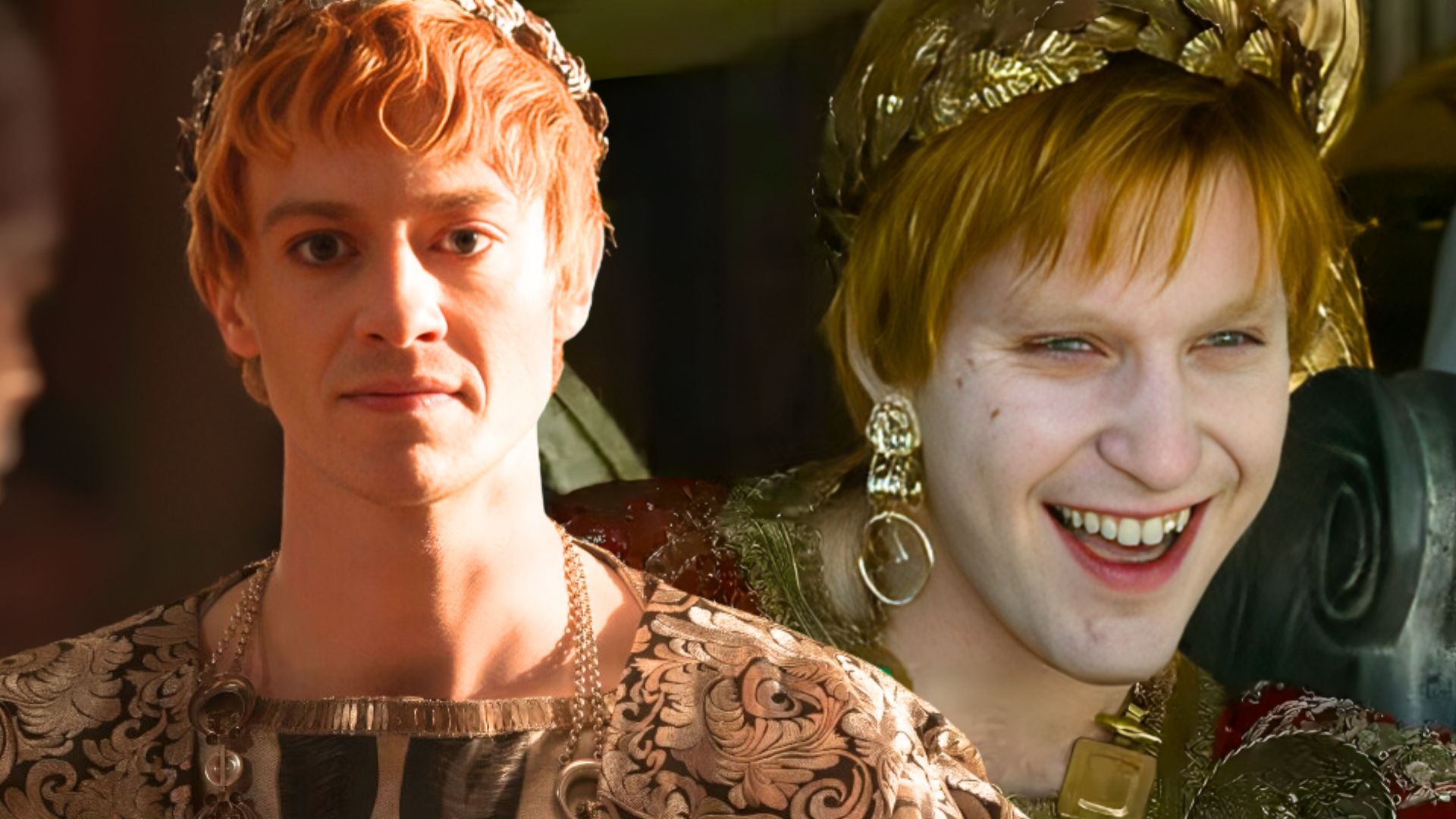
Related
There’s a Historical Reason Why the ‘Gladiator’ Emperors Are So Crazy, According to Ridley Scott
An excavation of Ostia Harbor in 2017 revealed that the use of lead pipes in Rome dates back to 200 BC, several years before the reign of Caesar
Publius Septimius Geta
Born in 189 CE, Publius Septimius Geta, generally known as Geta, was portrayed by Joseph Quinn in Gladiator II. In real life, Geta went through the usual preparation to be ruler and, in 209 CE, joined his father, Septimius Severus, and his brother, Caracalla, in overseeing the Roman Empire. In reality, Caracalla saw Geta as a threat and, after their father died in 211 CE, planned to have him killed.
After one plan to kill Geta failed, Caracalla arranged for their mother, Julia Domna, to trick Geta into going to her apartment under the guise of seeking peace. When Geta arrived, a group of centurious “rushed in a body and struck down Geta” under Caracalla’s orders. Historian Cassius DIo described the scene:
Geta, who at sight of them had run to his mother, hung about her neck and clung to her bosom and breasts, lamenting and crying: “Mother that didst bear me, mother that didst bear me, help! I am being murdered.” And so she, tricked in this way, saw her son perishing in the most impious fashion in her arms, and received him at his death into the very womb, as it were, whence he had been born; for she was all covered with his blood, so that she took no note of the wound she had received on her hand.
Unlike what is seen in Gladiator II, Macrinus had nothing to do with Geta’s murder.
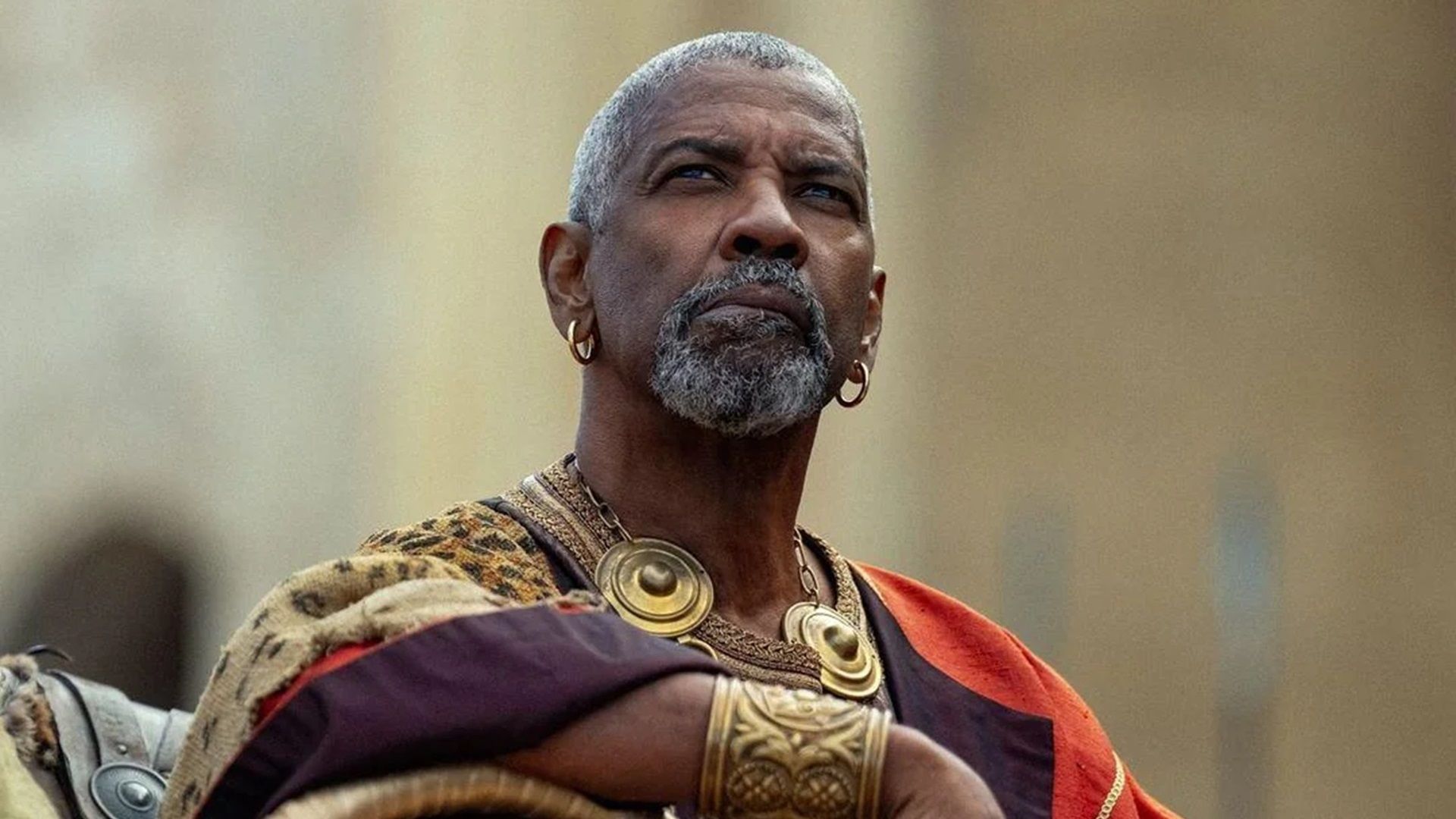
Related
Ridley Scott Denies Denzel Washington’s ‘Gladiator II’ Gay Kiss Ever Happened
The director said the kiss between Washington and another man never happened, a week after the star said it was cut from the movie.
Marcus Opellius Macrinus
Played by Denzel Washington, Gladiator II’s Macrinus was named after the same historical figure. While the name and some events in the movie are somewhat representative of the real Macrinus, the movie doesn’t accurately portray his life or his rise to power.
Marcus Opellius Macrinus was Roman Emperor from April 217 to June 218 CE. Macrinus was born in modern-day Algeria, was of Berber descent, and served as praetorian prefect under Caracalla. As praetorian prefect, Macrinus was a key bureaucrat in Caracalla’s administration and was trusted by the Emperor. Macrinus, for his part, was part of the assassination of Caracalla in 217 CE.
When a soldier named Justin Martialis stabbed Caracalla, it was on Macrinus’ orders. Just like Macrinus in Gladiator II, the historical Macrinus did eliminate Caracalla.
Macrinus became emperor three days later, backed by the military. As an equestrian, Macrinus was the first individual not from the senatorial class to become emperor. His tenure was short, however, because Caracalla’s son, Elagabalus, was declared emperor by rivals in early 218 CE. Macrinus and his young son, Diadumenianus, were executed by the men supporting Elagabalus.
